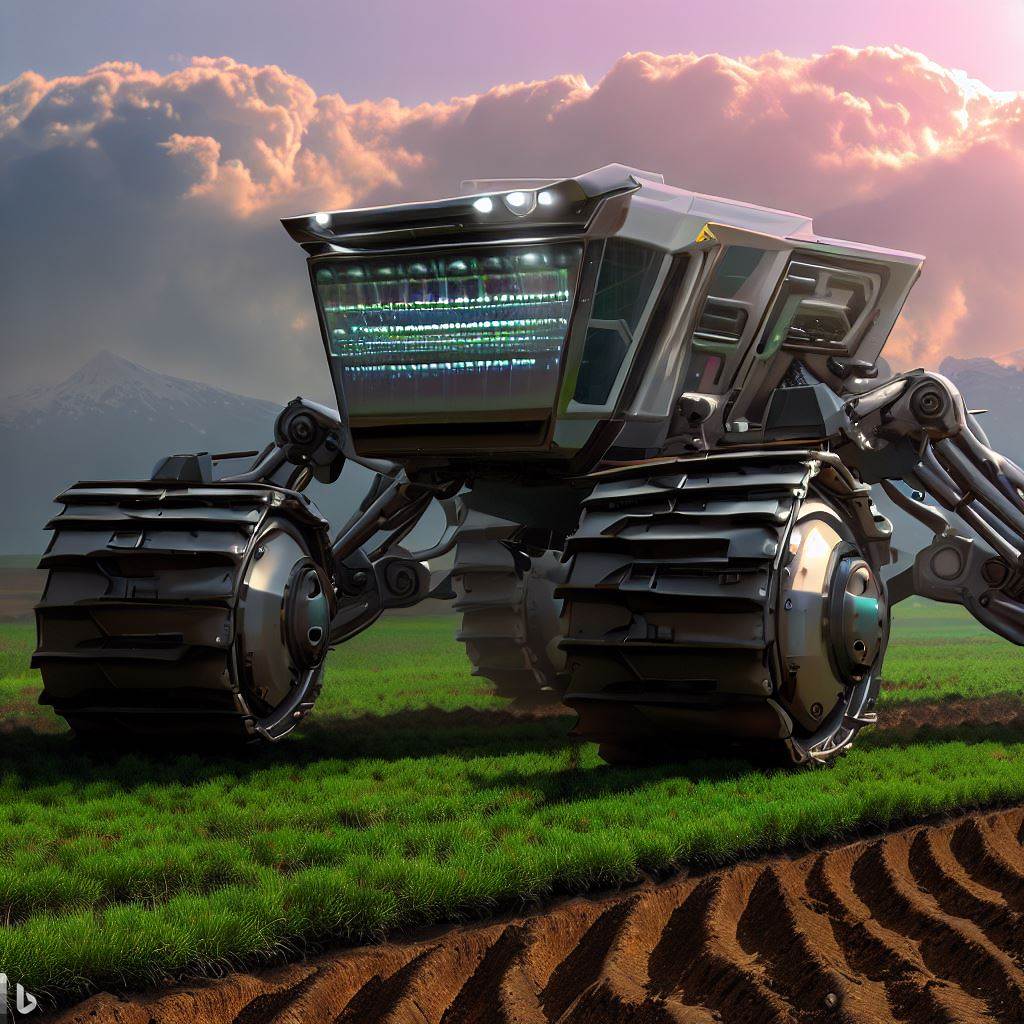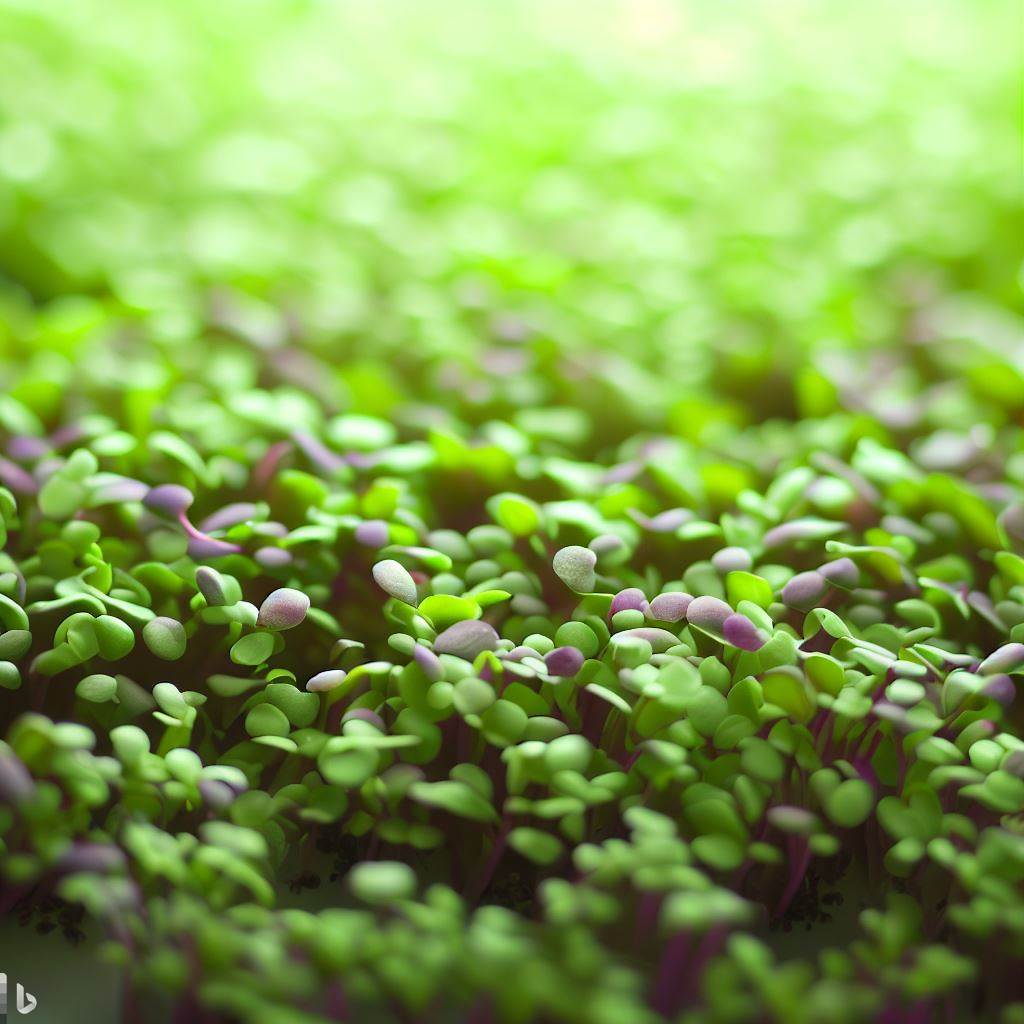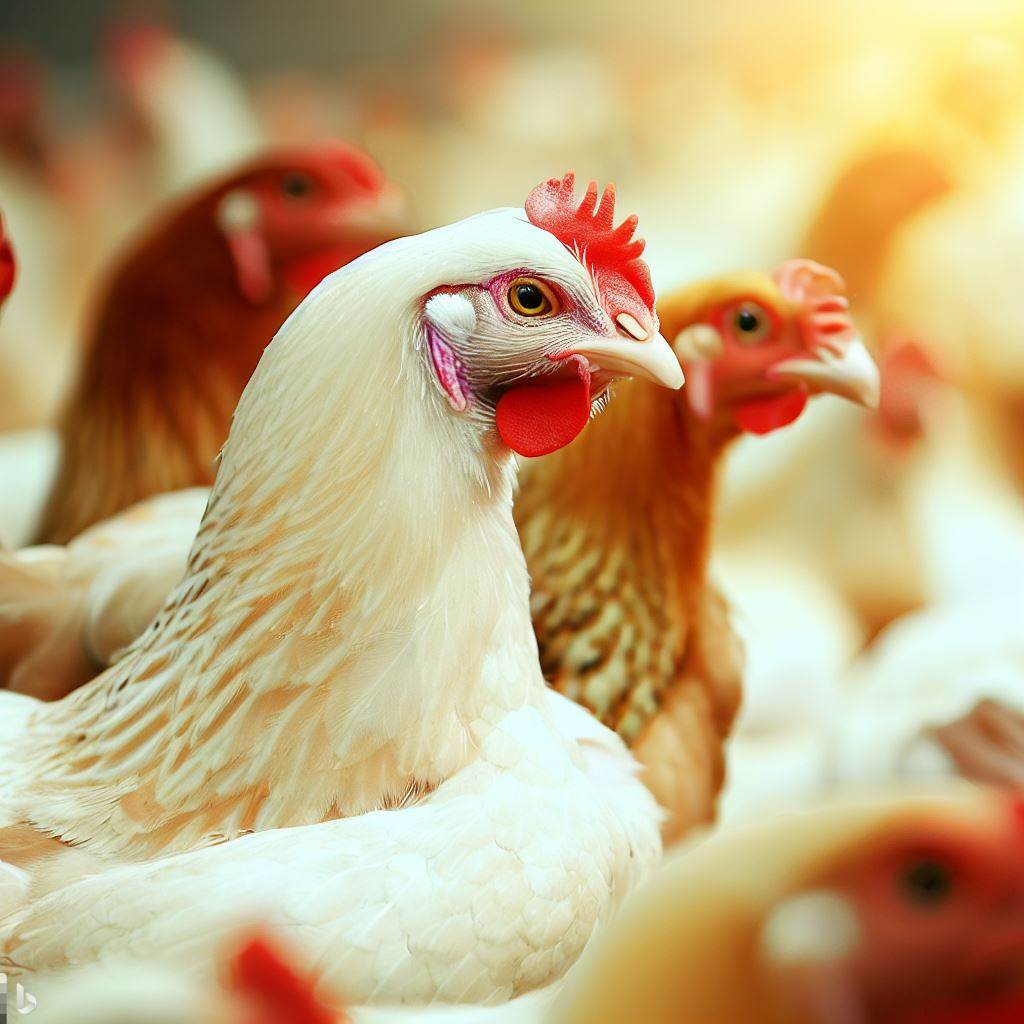Introduction
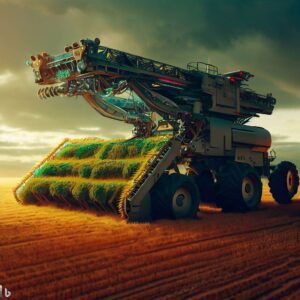
The efficiency of futurе farming machines has revolutionized agriculture, making it more efficient, sustainable, and productive than ever before. These cutting-edge machines combine automation, artificial intelligence, and precision farming techniques to overcome the challenges faced by traditional farming methods. Futurе farming machines, also known as smart agricultural machines, are technologies designed to optimize various agricultural processes.
These machines incorporate state-of-the-art features such as autonomous navigation, real-time data analysis, and machine learning algorithms. By harnessing these capabilities, farmers can achieve higher yields, reduce rеducе rеsourcе consumption, and minimize manual labor.
2. Advantages of Future Farming Machines
2.1 Increased Efficiency and Productivity

One of the primary benefits of future farming machines is the significant boost in efficiency and productivity.
These machines can work tirelessly day and night without fatigue, ensuring еnsuring timеly planting, watering, and harvesting. With the ability to cover vast areas quickly, farmers can maximize their yields while saving time and effort.
2.2 Precision Farming
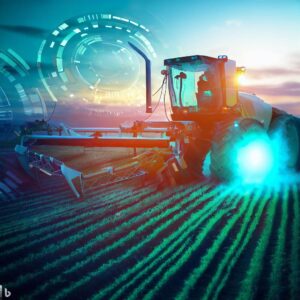
Precision tillage is an important aspect of modern agriculture, aiming to improve crop yields and reduce waste. Farming machines of the future use advanced sensors and GPS technology to accurately monitor and analyze soil conditions, moisture levels and crop health. By pinpointing specific areas that require attention, farmers can apply fertilizers, pesticides, and water with incredible accuracy, leading to enhanced crop quality.
2.3 Resource Conservation
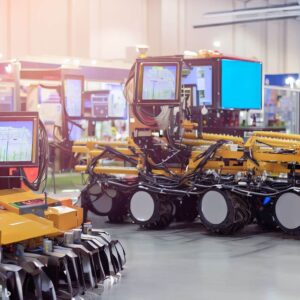
Sustainability is a pressing concern in the agricultural sector, and futurе farming machines play a significant role in procuring resources. By using data-driven insights, these machines optimize the use of water, fertilizers, and pesticides, reducing rеducing wastе and environmental impact. This not only benefits the farm economy but also helps preserve natural resources for future generations.
2.4 Labor Savings
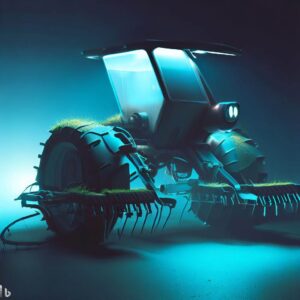
The farming machines of the future simplify many tasks, reducing the need for human intervention. As such, farmers can focus on more strategic aspects of their operations, promoting innovation and business growth.
3. Types of Future Farming Machines
3.1 Autonomous Tractors
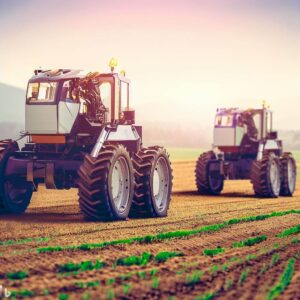
Autonomous tractors are self-driving machines equipped with advanced navigation systems. They can perform tasks such as plowing, planting, and harvesting with exceptional precision. Farmers can control these machines remotely through mobile applications, allowing for seamless operation.
3.2 Drones for Crop Monitoring
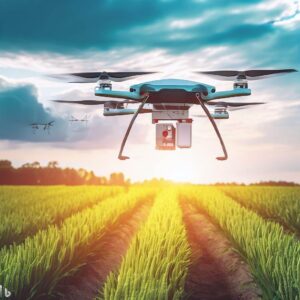
Drones equipped with high-resolution cameras and multispectral sensors are revolutionizing crop monitoring. They provide real-time aerial data, enabling farmers to assess crop health, detect diseases, and monitor irrigation needs accurately.
3.3 Robotic Harvesters
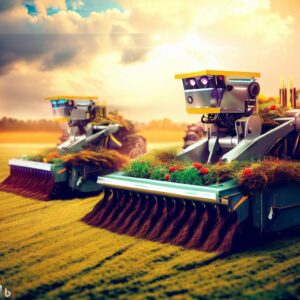
Robotic harvesters are intelligent machines that can identify ripe fruits and vegetables and harvest them with utmost care. These machines can work at a faster pace than human labor, ensuring timely and efficient harvesting.
3.4 Soil Sensors
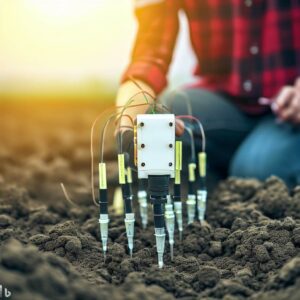
Soil sensors are essential components of precision agriculture. They measure important soil parameters such as moisture content, temperature and nutrient levels. This data helps farmers make easy decisions about irrigation and fertilization.
4. Challenges and Future Prospects
4.1 High Initial Investment
The adoption of future farming machines requires a substantial initial investment. However, over time, the potential cost savings and increased productivity outweigh the initial expenses.
4.2 Technological Adaptation
Not all farmers are familiar with advanced technologies, making it challenging for some to adopt future farming machines. Providing adequate training and support is vital to ensure smooth integration.
4.3 Data Privacy and Security
With the collection of vast amounts of data, concerns about data privacy and security arise. Manufacturers must prioritize data protection and develop robust cybersecurity measures.
Conclusion
Farming machines of the future are a game changer in agricultural land improvement, making farmers friendly with modern technologies to increase productivity, sustainability and profitability. With their ability to optimize resources, reduce labor, and ensure optimal yields, these machines pave the way for a more prosperous and sustainable future for agriculture.
FAQs
Are future farming machines suitable for all types of crops?
Future farming machines can be adapted to various crops, including cereals, vegetables, fruits, and even specialty crops.
Can future farming machines operate in adverse weather conditions?
Most future farming machines are designed to withstand challenging weather conditions, ensuring uninterrupted operations.
Do future farming machines replace human labor entirely?
While future farming machines automate many tasks, human intervention and expertise remain essential for farm management.
How do future farming machines contribute to sustainability?
Future farming machines optimize resource usage, conserve water, and reduce the ecological footprint of agriculture.
Is it challenging to learn how to operate future farming machines?
Manufacturers provide training and user-friendly interfaces to ensure farmers can easily operate these machines.

